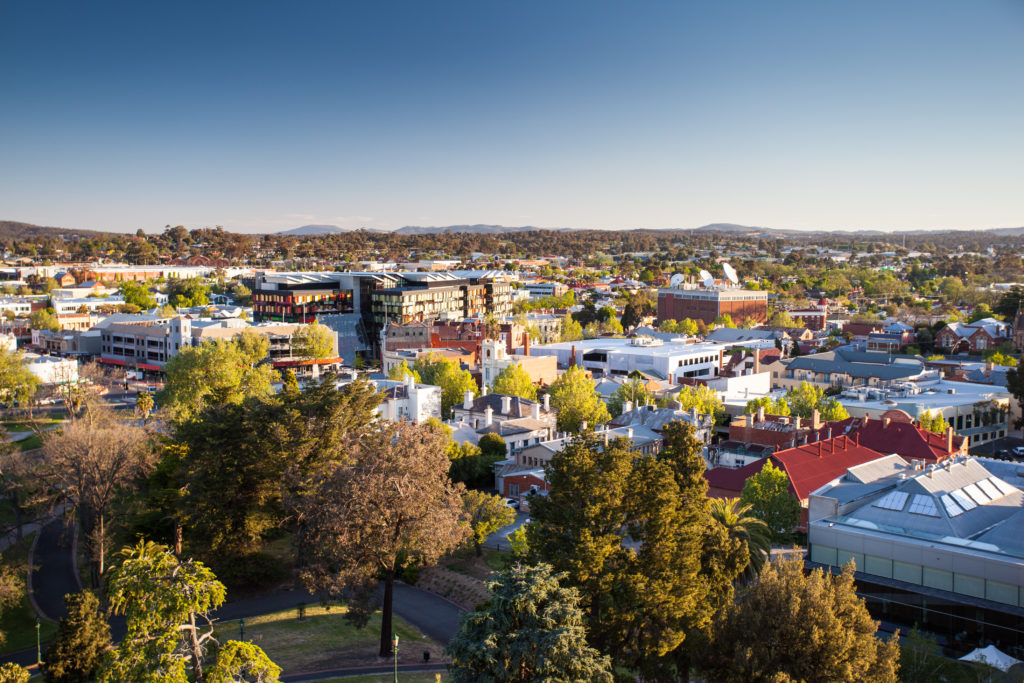If you’ve ever wondered what it’s like to study in regional Australia, now is the perfect time to find out – and regional Victoria could be the perfect spot! From unique course options to an affordable cost of living, there are plenty of benefits to studying in regional Victoria. On top of that, there are also several visa-related perks – such as migration incentives – that you could gain from studying in this corner of the country.
Want to learn more? Here’s everything you need to know about studying in regional Victoria and how it affects your visa options.
What is regional Victoria?
Let’s address the first thing you may be wondering: what is considered regional Victoria? The answer is actually quite simple. Under the regional migration scheme outlined by the Australian Federal Government, most locations outside Australia’s three largest cities (Sydney, Melbourne and Brisbane) count as designated regional areas for migration purposes. That means that, aside from Melbourne, most Victorian cities (such as Wodonga, Bendigo, Geelong and Mildura, for instance) qualify as regional destinations.
Unique course offerings
With world-renowned education providers, Victoria is one of the best places in Australia to receive a quality education. In regional Victoria specifically, you’ll have a wide range of fascinating and unique course offerings to pursue.
If you’re more technologically inclined, check out La Trobe University’s Master of Internet Things. This one-of-a-kind, innovative postgraduate degree marries technical knowledge with practical learning opportunities – and it can only be studied at La Trobe’s Bendigo campus nestled in regional Victoria. Plus, the university hosts a number of partnerships with local industry, so there is a range of opportunities for students to get hands-on work experience (also known as Work-Integrated Learning). Meanwhile, healthcare is a key industry in Wodonga, so if you’re eager to study nursing or psychological sciences, the La Trobe University campus in Albury-Wodonga is a perfect choice.
In the Barwon South West Region, you’ll find Deakin University, an RMIT University campus and two TAFE institutes, which offer several unique courses. Specifically, South West Institute of TAFE offers diploma and certificate programs in specialisation areas like agriculture, horticulture, parks and gardens, and production nursery. Given that this region boasts a healthy timber plantation and harvesting industry, there’s no better place than regional Victoria to pursue such degrees.
Cost of living
From rent to groceries to utility bills, living expenses can pile up quickly. However, when you opt to live and study in regional Victoria, you can significantly cut down on these costs. Across Australia, regional areas provide much more affordable accommodation rates. Depending on how rural you go, your weekly rent could be as low as $100 in a share house. While grocery bills and entertainment expenses will likely be similar no matter where you live, many regional areas also provide free or cheap public transport, making it far more affordable for international students.
Plus, as an international student, you could be eligible to save significantly on public transport with the help of the International Student Travel Pass, which gets you 50 per cent off an annual myki pass.
Visas incentives
Want to keep working in Australia once you’ve finished your studies? No worries! There are many visas you can apply for once you’ve completed your studies, many of which are tailored to students who have studied in regional areas.
Among the most popular visas for recent graduates is the Temporary Graduate visa (subclass 485). In Australia, the Temporary Graduate visa, often known as the TGV, is available to most recent international student graduates (with certain exceptions) and allows them to remain in the country for an additional 18 months to five years. While nearly every international graduate is eligible for one TGV, studying in regional Victoria could be your ticket to a second one. When you graduate from a regional campus of a registered educational institution with a higher education or postgraduate qualification, you may be eligible to apply for a second TGV (Post-Study Work stream) and access regional migration schemes. You can find more information on this recent TGV update here or through our archived webinar.
Because most Victorian cities are classified as regional areas, studying in these destinations could make you eligible for migration incentives under these schemes. You may then apply for certain long-term regional visas once you complete your course, such as the Skilled Work Regional (Provisional) visa (subclass 491) or the Skilled Employer Sponsored Regional (Provisional) visa (subclass 494). Getting visas like these could bring you one step closer to applying for permanent residency, which is awesome if you’re hoping to settle in Australia.
For more information on your regional Victoria visa options and on the skills list for regional Victoria, consult the Department of Home Affairs website.
Where to find visa support
If you’re in need of a little extra assistance when choosing or applying for your visa, don’t worry – there are plenty of places you can go for guidance.
First, try consulting your education provider. Australian institutions receive a high number of international students every year, so they’re very familiar with different types of visas and application processes. In fact, many institutions, such as La Trobe University, feature dedicated visa information pages and can help direct you to the best places to find official, accurate visa information. Be sure to check your education provider’s website to see what kind of information and support resources they offer for visa applications. Otherwise, you can head to the Department of Home Affairs website or contact a Registered Migration Agent to have all your visa-related questions answered.





